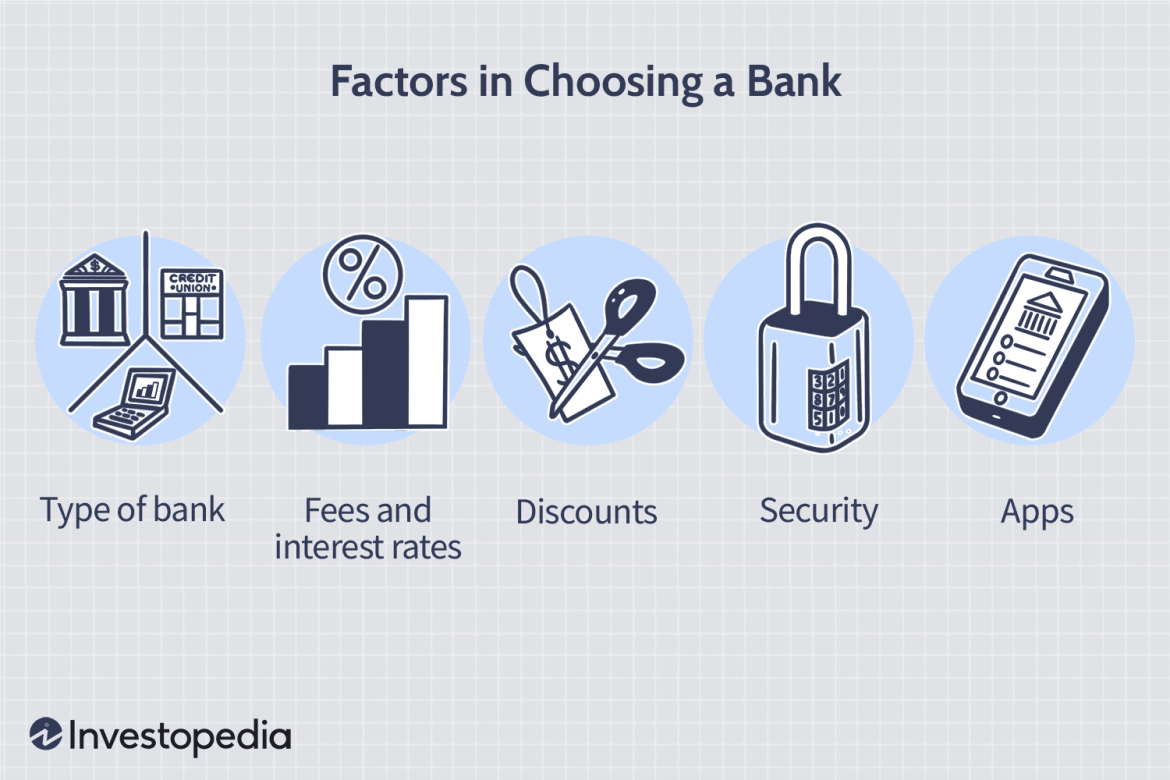Finding the right bank account for you involves considering your personal financial goals, banking needs, and preferences. Here are some factors to consider when selecting a bank account.
- Account Types: Determine the type of account that suits your needs. Common options include checking accounts, savings accounts, money markets accounts, certificates of deposit (CDs), and individual retirement accounts (IRAs).
- Fees: Understand the fees associated with the account. Some common fees include monthly maintenance fees, minimum balance fees, ATM fees, overdraft fees, and transaction fee. Look for accounts with minimal or no fees, or options to waive fees based on certain criteria.
- Minimum Balance Requirements: Consider whether the account has a minimum balance requirement and if it aligns with your financial situation. Some accounts may waive fees or offer additional benefits if you maintain a certain minimum balance.
- Interest Rates: If you’re interested in earning interest, compare the interest rates offered by different banks. Higher interest rates can help your savings grow faster, particularly with savings accounts and CDs.
- Accessibility and Convenience: Evaluate the bank’s branch and ATM network to ensure convenient access to your funds. Consider whether the bank offers online banking, mobile apps, and other digital features that align with your banking preferences.
- Customer Service: Research the bank’s reputation for customer service. Read reviews and consider personal recommendations to gauge the bank’s responsiveness, helpfulness, and overall customer satisfaction.
- Additional Service: Consider any additional banking services or perks offered by the bank, such as free bill pay, mobile cheque deposit, budgeting tools, or rewards programs.
- Compatibility with Other Financial Needs: If you have specific financial needs, such as a requirement for business banking, loans, mortgages, or investment services, consider whether the bank can meet those needs or provide integrated solutions.
- Switching Options: Explore the ease of transferring funds and setting up automatic payments or direct deposits when switching to a new bank.
It’s advisable to compare multiple banks and their account offerings to find the best fit for your financial situation and preferences. Consult with the banks directly, visit their websites, or read reviews and comparisons from reliable sources to gather more information before making a decision.

